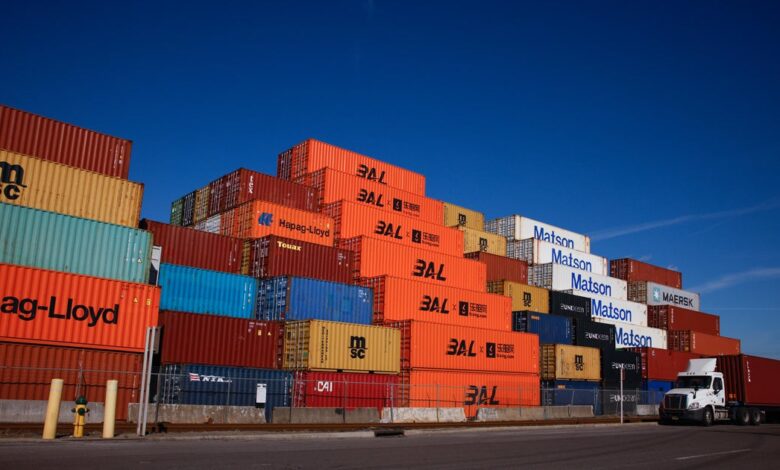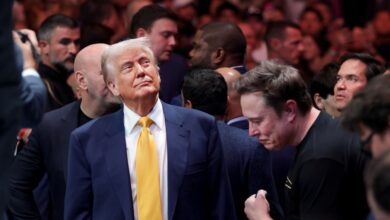Trump’s sweeping new tariffs in effect, including 104% on goods from China

President Trump’s recent implementation of tariffs on imports from various countries has triggered a wave of economic uncertainty, with the potential for a global trade war looming on the horizon. The tariffs, which went into effect at 12:01 a.m. EDT, include a staggering 104% on goods imported from China, marking a significant escalation in trade tensions.
The impact of these tariffs has reverberated across the global markets, with Asian markets experiencing a downturn. Japan’s Nikkei 225 and Hong Kong’s Hang Seng both saw declines, while Taiwan’s Taiex plummeted by 5.8%. In Europe, shares also sank, with major markets like Paris, Frankfurt, and London all experiencing losses.
Despite the initial market reactions, U.S. stock futures showed a mixed trend, with S&P 500 and Dow Jones Industrial Average futures in the red, while Nasdaq Composite futures edged higher.
One of the countries most affected by the tariffs is China, which has been engaged in a trade dispute with the U.S. for some time. The escalating tension has prompted China to vow to fight a trade war “to the end” and announce countermeasures to protect its interests. The cumulative tariff increase on Chinese goods under President Trump’s administration now stands at a staggering 104%.
Seeking Negotiations
The White House has indicated that the tariffs are intended to initiate negotiations with U.S. trading partners. President Trump and his administration are reportedly working on tailored deals with countries like Japan and South Korea. Despite the tough stance on tariffs, the president has expressed a willingness to engage in discussions and make deals that benefit American workers.
While the U.S. is imposing tariffs on various countries, there are indications that some nations are open to reducing their tariffs in order to reach agreements with the U.S. For example, Argentina, Vietnam, and Israel have reportedly offered to lower their tariffs in negotiations with the U.S.
Economic Implications
President Trump has defended his tariff policy as a means to revitalize America’s manufacturing sector by encouraging companies to relocate to the U.S. However, experts and economists have expressed concerns about the potential impact of the tariffs, warning of higher inflation and increased prices for consumers.
As tensions escalate, more tariffs are expected to be announced. President Trump recently hinted at a major tariff on pharmaceuticals, while Canada and the European Union have also taken steps to impose tariffs on certain U.S. imports.
Global Response
The European Union has emphasized the importance of stability in the global economy and has urged caution in escalating trade conflicts. EU leaders have engaged in discussions with Chinese officials to address concerns about the impact of tariffs on the world economy.
In response to U.S. tariffs on steel and aluminum, the EU is planning to impose tariffs on American goods, ranging from soybeans to motorcycles. This retaliatory measure is part of the EU’s strategy to counter the impact of U.S. tariffs on European exports.





